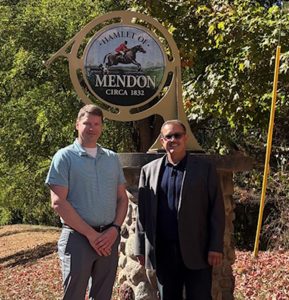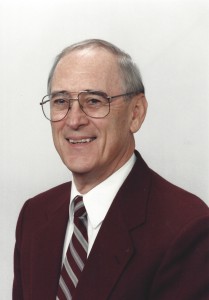 There’s been a lot of chatter among folks across the Greater Western New York Region about a couple issues the State has been proposing in its forthcoming budget. One is a ban on gas appliances, which doesn’t yet have much clarity. The other deals with another attempt to remove so-called “Home Rule” and force the state into the local zoning process. Steve Schultz, Supervisor of the Town of Henrietta and Rick Milne, Mayor of Honeoye Falls and Monroe County Legislator, were kind enough to brief us on the Home Rule issue.
There’s been a lot of chatter among folks across the Greater Western New York Region about a couple issues the State has been proposing in its forthcoming budget. One is a ban on gas appliances, which doesn’t yet have much clarity. The other deals with another attempt to remove so-called “Home Rule” and force the state into the local zoning process. Steve Schultz, Supervisor of the Town of Henrietta and Rick Milne, Mayor of Honeoye Falls and Monroe County Legislator, were kind enough to brief us on the Home Rule issue.
Stephen Schultz: “I’ve been following up with the association of towns from a topic that came up during my term as President of the Monroe County Supervisors Association. It has to do with Home Rule with regards to zoning laws. There was some proposed laws regarding auxiliary dwelling units (“ADUs”) and our secondary units. It’s part of an attempt to increase available housing stock to reduce prices. There’s also some efforts that they’re looking to try to remove some of the exclusionary zoning practices that arose, especially during what I’ll call the Jim Crow era.”
‘They’re all great goals, but unfortunately the methods that we’re seeing proposed in Albany tend to be fairly heavy-handed and take away Home Rule. So I’ve been discussing this with the Association of Towns. It’s kind of been a little “whack a mole” when we try to stop the Home Rule. I think the problem is because there hasn’t been a solution that addresses the underlying problems that they’re going after. So I’ve been working with the Association of Towns talking with them about approaches we can advocate.”
“For instance, going back to the auxiliary dwelling units, rather than say that they can be in any place on any property anywhere throughout the town, say, ‘Okay towns, you have to identify 20 of your residential zoning districts that can’t allow these auxiliary dwelling units.’ That allows them to maintain Home Rule.”
“Being perfectly honest, a lot of our older communities don’t have the infrastructure that could support the additional density that would come about from those auxiliary dwelling unit’s impact on the sewer, on the water, on the electricity, etc… It’s important to maintain Home Rule.”
“One of the other things they’ve been talking about is affordable housing and talking about increasing the housing density. The problem is that doesn’t necessarily resolve the issue, because home builders are in it for profit, and there’s generally more profit to be made from building bigger houses. So, if you’re going to force them to build more affordable homes, there needs to be some incentive for them to do so.”
“Unfortunately, a lot of towns don’t have incentive zoning laws and they’re nontrivial to implement. There are some possible ideas. There could be a statewide incentive zoning law regarding affordable housing that towns could adopt. So the idea is they could keep their densities where they are for most houses but if they meet some criteria, they could allow greater density.”
“If you just change the zoning laws to reduce or to increase the density to reduce the lot size, I’ll tell you what will happen. The developers will build the bigger houses on smaller lots. There’ll be no backyards, and they’ll still make all their money, but they’ll make additional profit instead of building affordable.”
“I would never want to see a program where money goes directly to the developer because that opens the door for corruption.”
“The other thing that they could do if you want to get the housing costs down on a per lot cost is the development of the infrastructure. The installation of an infrastructure is often what creates high per lot cost, which then requires developers to go to larger homes to cover that cost. So, one of the ideas there could be, if the State wants to put something in place and address this, they can have a program where you could apply for funding to build that infrastructure – the sewer, the water, and the roads – and put that under the town that funds it so the town can put in.”
“Now, it could still be ultimately the developer who does the work, but the point is, it’s now not just money going to the developer that could disappear, it would only go towards the installation of the infrastructure. And if that infrastructure is paid for, it’s not borne by the cost of the housing lots, which then can allow them to put in less expensive houses. Again, I would tie it to that requirement that they be more affordable homes.”
“That’s the kind of stuff we’re talking to try to kind of change the discussion, because, like I said, otherwise, I’m afraid we’re going to end up with some heavy handed legislation that comes out of Albany and tries to solve problems for downstate, and then paint upstate with the same brush. Solutions that work in one area often don’t work in the other area. So we’re trying to come up with ideas that will work all around.”
“That was a big topic. We had 18 of the 19 towns sign on to a letter to the Governor with regards to that. So, even though my term has ended, I’ve continued to follow up on that, you know, because it’s important to all of us.”
Rick Milne: “Supervisor Moffitt and I were talking last night about it, but the ADU discussion is very important. On local social media there’s been a lot of discussion on that, as of late. We’re going have a little bit of discussion about that at our next Village Board meeting, but then we probably will be hosting or supporting a community meeting here at the Village Hall or elsewhere regarding use, because we want people to understand both sides, if you will, or all the information.”
“There’s a lot of sentiment in this about, having an apartment for your aging parent, or something like that. But there’s a lot more to it. Steve brought up very well about the infrastructure, etc. So we are planning on talking about that in Honeoye Falls, and certainly our town partners will be invited to that as well.”
As the New York State budget process continues, stay abreast of this and other issues both through the Sentinel and through the quarterly Greater Western New York Town Hall meetings that it hosts.






Comments are closed.
[…] Growing Fears Albany May Usurp Local Zoning Rights […]